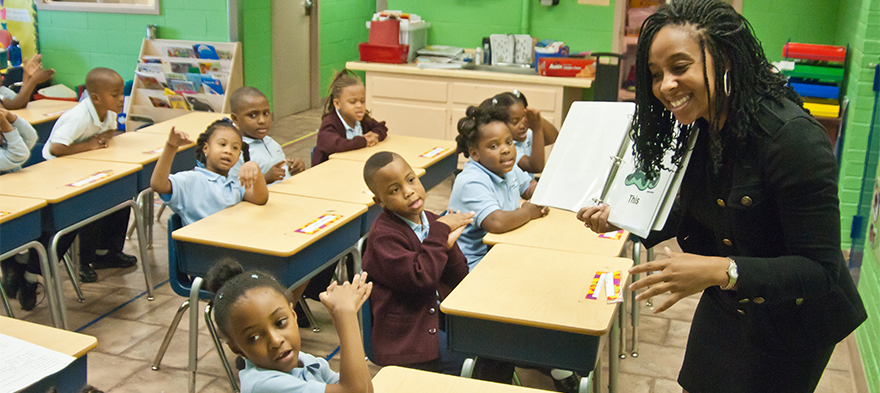
Jan 22, 2016 12:00:00 AM
You can set down 100 studies in front of me and try to convince me they are good for society, but the wealthy would never let their children be taught by TFA or by alternative [teaching] routes. Never.Perhaps Vasquez Heilig is speaking for himself and his other wealthy friends, but this is pure malarkey. Elite private schools—which teach a fair share of wealthy children and are freed from the licensing restrictions that hobble many public schools—are packed with teachers who come from so-called “alternative routes” because they offer real-world experience and subject expertise (not just an education degree). And in my well-resourced public schools, one of the best teachers my daughters ever had came from an “alternative route”—and I’d trade just about any TFA teacher for my daughter’s high school Algebra II teacher, who is paid $135,000 a year to teach his students how to hate math. Then there’s Brewer and his refrain:
They’ve bought into the myth of meritocracy, the myth of the failed school, and that they need to fix the bad teachers and get into elected positions to spread vouchers, spread charters.I’ve taken Brewer to task before for misstating the obvious, but seriously? Failed schools are now a myth? How else would Mr. Brewer describe the 1,400 high schools that graduate fewer than 60 percent of its students? Or the hundreds of schools where only a fraction of students learn reading and numeracy at grade level, year after year after year? Mr. Brewer, a former TFA corps member trying to build an academic career out of TFA bashing, is like many in his cabal of conspiracy theorists and status-quo defenders—quick to blame poverty and family dysfunction for academic struggles, loathe to hold responsible teachers and schools who either can’t see or squander the promise of their most vulnerable students.
(Corps members) worked hard and still experienced both significant failures and unexpected negative life changes.Puh-leese. Not to be insensitive here, but how is this different from the start of any other challenging career, when you’re in over your head and so much is at stake? I’ve seen corps members in classrooms, I’ve worked with alumni, and I’ve read the studies Vasquez Heilig loves to discount. I’m a supporter, but I’m not blind to TFA’s flaws. Nor is TFA blind to TFA’s flaws. I’ve been cheered by just how honest my daughter’s recruiters have been about the organization’s controversies and the challenges she will face if she accepts her assignment. Maybe I’m idealistic, but I’m proud of my daughter’s idealism. I want her to do meaningful work, make a difference, and yeah, change the world.
Tracy Dell’Angela is a writer, education nonprofit executive director and a mom passionate about education improvements. Previously, Tracy was Director of Outreach and Communications for the Institute of Education Sciences (IES) at the U.S. Department of Education in Washington, D.C. She came to IES from the University of Chicago Consortium on Chicago School Research, which produces research that drives improvement in Chicago and nationwide. She also served as Senior Project Director for 100Kin10 at the University of Chicago and was Director of Program Investments and Partnerships for the Chicago Public Education Fund. Tracy spent most of her career as an award-winning newspaper journalist, including 12 years at the Chicago Tribune as an education reporter covering national policy and the Chicago Public Schools. A Californian by birth but a Chicagoan in spirit, Tracy attended University of Chicago as a master's student in social sciences and earned a B.A. in journalism and political science from San Diego State University.
Few issues in education spark more tension and debate than standardized testing. Are they a tool for equity or a burden on students? A necessary check on school systems or a flawed measure of...
Charter schools are public schools with a purpose. Operating independently from traditional school districts, they're tuition-free, open to all students, and publicly funded—but with more flexibility...
Despite the benefits of a diverse teaching force, prospective teachers of color fall out of our leaky preparation pipeline at every stage: preparation, hiring, induction, and retention. Here’s what...
Ed Post is the flagship website platform of brightbeam, a 501(c3) network of education activists and influencers demanding a better education and a brighter future for every child.
© 2020-2025 brightbeam. All rights reserved.
Leave a Comment